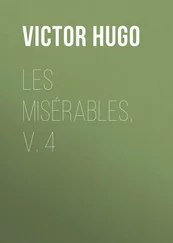Lascelles Wraxall - Les Misérables, v. 1
Здесь есть возможность читать онлайн «Lascelles Wraxall - Les Misérables, v. 1» — ознакомительный отрывок электронной книги совершенно бесплатно, а после прочтения отрывка купить полную версию. В некоторых случаях можно слушать аудио, скачать через торрент в формате fb2 и присутствует краткое содержание. Жанр: literature_19, foreign_antique, foreign_prose, на английском языке. Описание произведения, (предисловие) а так же отзывы посетителей доступны на портале библиотеки ЛибКат.
- Название:Les Misérables, v. 1
- Автор:
- Жанр:
- Год:неизвестен
- ISBN:нет данных
- Рейтинг книги:4 / 5. Голосов: 1
-
Избранное:Добавить в избранное
- Отзывы:
-
Ваша оценка:
- 80
- 1
- 2
- 3
- 4
- 5
Les Misérables, v. 1: краткое содержание, описание и аннотация
Предлагаем к чтению аннотацию, описание, краткое содержание или предисловие (зависит от того, что написал сам автор книги «Les Misérables, v. 1»). Если вы не нашли необходимую информацию о книге — напишите в комментариях, мы постараемся отыскать её.
Les Misérables, v. 1 — читать онлайн ознакомительный отрывок
Ниже представлен текст книги, разбитый по страницам. Система сохранения места последней прочитанной страницы, позволяет с удобством читать онлайн бесплатно книгу «Les Misérables, v. 1», без необходимости каждый раз заново искать на чём Вы остановились. Поставьте закладку, и сможете в любой момент перейти на страницу, на которой закончили чтение.
Интервал:
Закладка:
Success is a very hideous thing, and its resemblance with merit deceives men. For the herd, success has nearly the same profile as supremacy. Success, that twin brother of talent, has a dupe, – history. Tacitus and Juvenal alone grumble at it. In our days an almost official philosophy wears the livery of success, and waits in its ante-room. Succeed, that is the theory, for prosperity presupposes capacity. Win in the lottery and you are a clever man, for he who triumphs is revered. All you want is to be born under a fortunate star. Have luck and you will have the rest, be fortunate and you will be thought a great man; leaving out five or six immense exceptions, which form the lustre of an age, contemporary admiration is blear-eyedness. Gilding is gold, and it does you no harm to be any one so long as you are the parvenu. The mob is an old Narcissus, adoring itself and applauding the mob. That enormous faculty by which a man is a Moses, Æschylus, Dante, Michael Angelo, or Napoleon, the multitude decrees broadcast and by acclamation to any one who attains his object, no matter in what. Let a notary transfigure himself into a deputy; a false Corneille produce Tiridates; an eunuch contrive to possess a harem; a military Prudhomme accidentally gain the decisive battle of an age; an apothecary invent cardboard soles for the army of the Sambre-et-Meuse, and make out of the cardboard sold for leather an income of 400,000 francs a year; a pedler espouse usury and put it to bed with seven or eight millions, of which he is the father and she the mother; a preacher become a bishop by his nasal twang; let the steward of a good family be so rich on leaving service that he is made Chancellor of the Exchequer – and men will call it genius, in the same way as they call Mousqueton's face beauty and Claude's mien majesty. They confound with the constellations of profundity the stars which the duck's feet make in the soft mud of the pond.
CHAPTER XIII
WHAT HE BELIEVED
It is not our business to gauge the Bishop of D – from an orthodox point of view. In the presence of such a soul we only feel inclined to respect. The conscience of the just man must be believed on its word; besides, certain natures granted, we admit the possibility of the development of all the beauties of human virtue in a creed differing from our own. What did he think of this dogma or that mystery? These heart-secrets are only known to the tomb which souls enter in a state of nudity. What we are certain of is, that he never solved difficulties of faith by hypocrisy. It is impossible for the diamond to rot. He believed as much as he possibly could, and would frequently exclaim, "I believe in the Father." He also derived from his good deeds that amount of satisfaction which suffices the conscience, and which whispers to you, "You are with God."
What we think it our duty to note is that, beyond his faith, he had an excess of love. It was through this, quia multum amavit , that he was considered vulnerable by "serious men," "grave persons," and "reasonable people," those favorite phrases of our melancholy world in which selfishness is under the guidance of pedantry. What was this excess of love. It was a serene benevolence, spreading over men, as we have already indicated, and on occasion extending even to things. He loved without disdain, and was indulgent to God's creation. Every man, even the best, has in him an unreflecting harshness, which he reserves for animals, but the Bishop of D – had not this harshness, which is, however, peculiar to many priests. He did not go so far as the Brahmin, but seemed to have meditated on the words of Ecclesiastes – "Who knoweth the spirit of the beast that goeth downward to the earth?" An ugly appearance, a deformity of instinct, did not trouble him or render him indignant; he was moved, almost softened, by them. It seemed as if he thoughtfully sought, beyond apparent life, for the cause, the explanation, or the excuse. He examined without anger, and with the eye of a linguist deciphering a palimpsest, the amount of chaos which still exists in nature. This reverie at times caused strange remarks to escape from him. One morning he was in his garden and fancied himself alone; but his sister was walking behind, though unseen by him. He stopped and looked at something on the ground. It was a large black, hairy, horrible spider. His sister heard him mutter, "Poor brute, it is not thy fault." Why should we not repeat this almost divine childishness of goodness? It may be puerile, but of such were the puerilities of St. Francis d'Assisi and Marcus Aurelius. One day he sprained himself because he did not wish to crush an ant.
Such was the way in which this just man lived: at times he fell asleep in his garden, and then nothing could be more venerable. Monseigneur Welcome had been formerly, if we may believe the stories about his youth and even his manhood, a passionate, perhaps violent man. His universal mansuetude was less a natural instinct than the result of a grand conviction, which had filtered through life into his heart, and slowly dropped into it thought by thought, for in a character, as in a rock, there may be waterholes. Such hollows, however, are ineffaceable, such formations indestructible. In 1815, as we think we have said, he reached his seventy-fifth year, but did not seem sixty. He was not tall, and had a tendency to stoutness, which he strove to combat by long walks; he stood firmly, and was but very slightly built. But these are details from which we will not attempt to draw any conclusion, for Gregory XVI. at the age of eighty was erect and smiling, which did not prevent him being a bad priest. Monseigneur Welcome had what people call "a fine head," which was so amiable that its beauty was forgotten. When he talked with that infantine gayety which was one of his graces you felt at your ease by his side, and joy seemed to emanate from his whole person. His fresh, ruddy complexion, and all his white teeth, which he had preserved and displayed when he laughed, gave him that open facile air which makes you say of an aged man, "He is a worthy person." That, it will be remembered, was the effect he produced on Napoleon. At the first glance, and when you saw him for the first time, he was in reality only a worthy man, but if you remained some hours in his company, and saw him in thought, he became gradually transfigured and assumed something imposing; his wide and serious brow, already august through the white hair, became also august through meditation; majesty was evolved from the goodness; though the latter did not cease to gleam, you felt the same sort of emotion as you would if you saw a smiling angel slowly unfold his wings without ceasing to smile. An inexpressible respect gradually penetrated you and ascended to your head, and you felt that you had before you one of those powerful, well-bred, and indulgent souls whose thoughts are so great that they cannot but be gentle.
As we have seen, prayer, celebration of the Mass, almsgiving, consoling the afflicted, tilling a patch of ground, frugality, hospitality, self-denial, confidence, study, and labor, filled every day of his life. Filled is the exact word, and certainly the Bishop's day was full of good thoughts, good words, and good actions. Still, it was not complete. If cold or wet weather prevented him from spending an hour or two in the garden before going to bed after the two females had retired, it seemed as it were a species of rite of his to prepare himself for sleep by meditation, in the presence of the grand spectacle of the heavens by night. At times, even at an advanced hour of night, if the women were not asleep, they heard him slowly pacing the walks. He was then alone with himself, contemplative, peaceful, adoring, comparing the serenity of his heart with that of ether, affected in the darkness by the visible splendor of the constellations, and the invisible splendor of God, and opening his soul to thoughts which fall from the unknown. At such moments, offering up his heart at the hour when the nocturnal flowers offer up their perfumes, he could not have said himself, possibly, what was passing in his mind; but he felt something fly out of him and something descend into him.
Читать дальшеИнтервал:
Закладка:
Похожие книги на «Les Misérables, v. 1»
Представляем Вашему вниманию похожие книги на «Les Misérables, v. 1» списком для выбора. Мы отобрали схожую по названию и смыслу литературу в надежде предоставить читателям больше вариантов отыскать новые, интересные, ещё непрочитанные произведения.
Обсуждение, отзывы о книге «Les Misérables, v. 1» и просто собственные мнения читателей. Оставьте ваши комментарии, напишите, что Вы думаете о произведении, его смысле или главных героях. Укажите что конкретно понравилось, а что нет, и почему Вы так считаете.












